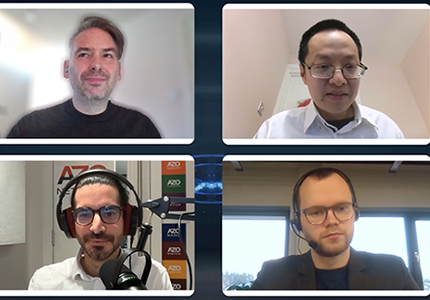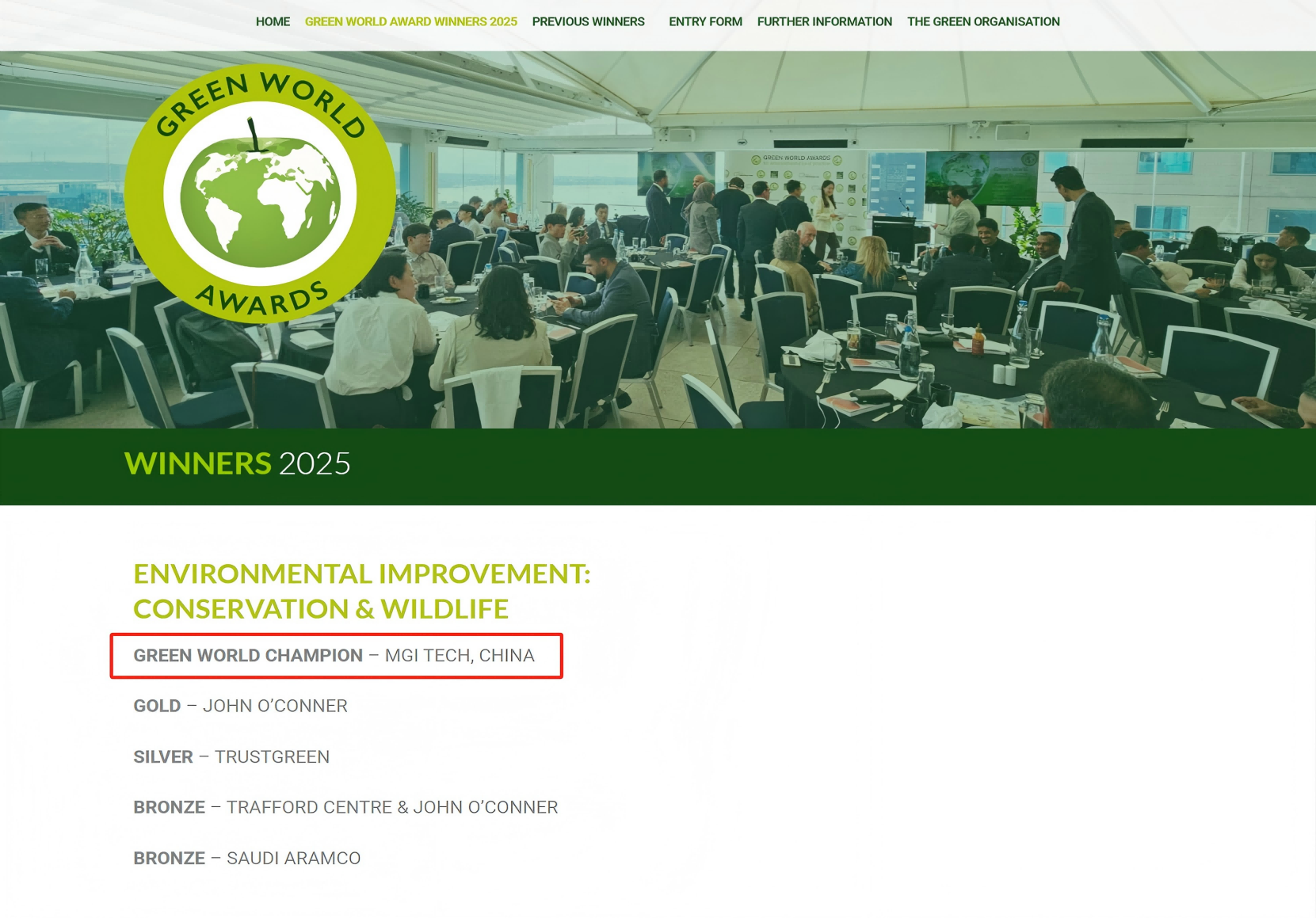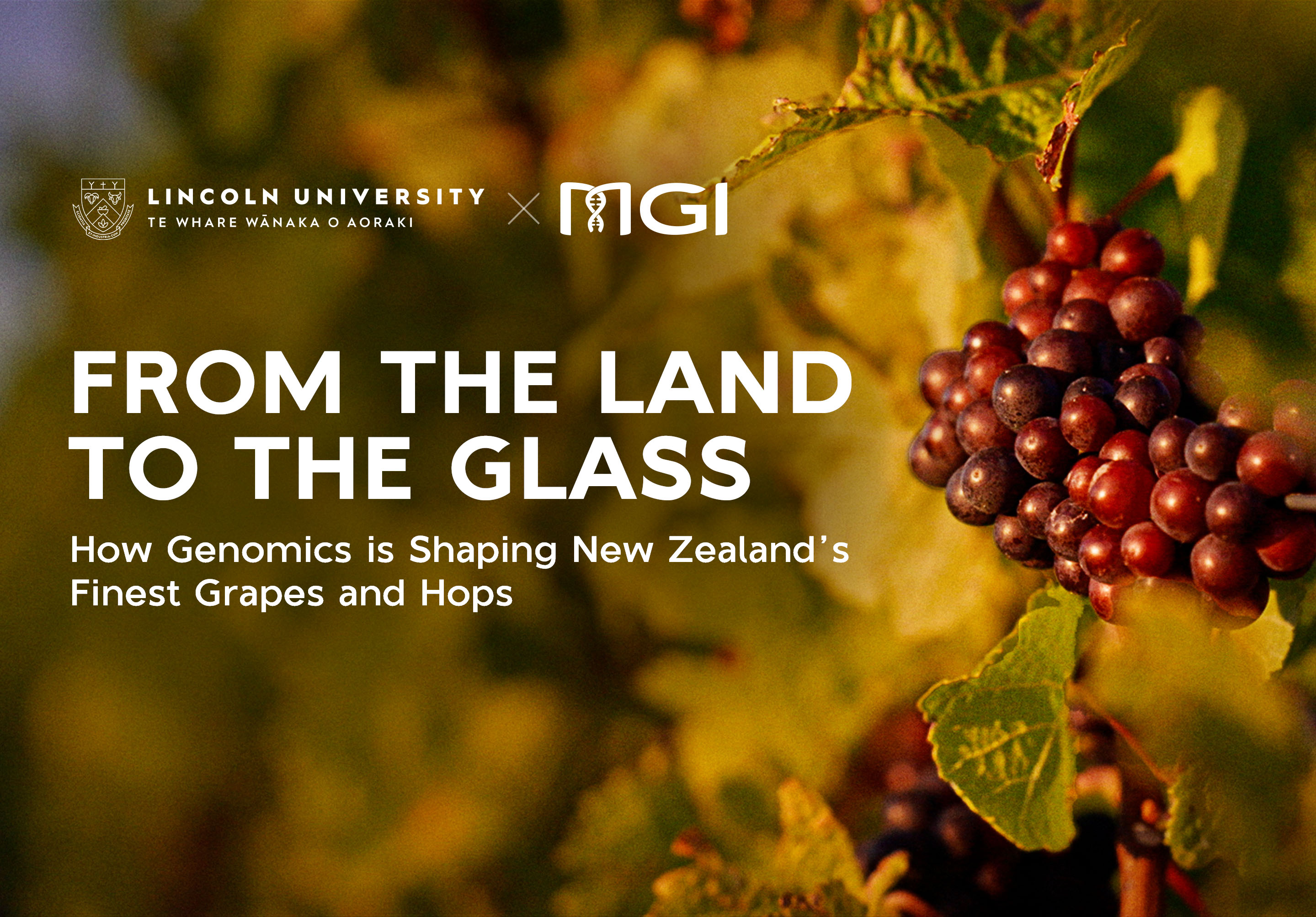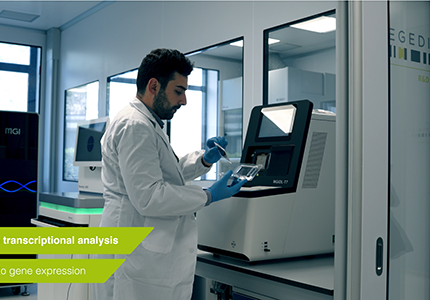As we celebrate World Cancer Day, we’re spotlighting the transformative impact of genomics in precision medicine for oncology. The theme of World Cancer Day 2025 is “United by Uniquel”, today in the latest episode of the MGI podcast, we invite industry experts shared their insights on the evolving landscape of genomic medicine, and multiple collaborative entities unite in their mission to conquer cancers—
- Dr Cheng Boon – Oncologist and OncoDNA UK Medical Director, shares frontline clinical insights
- Dr Gareth Gerrard – Clinical Scientist and Scientific Lead for Cancer at the South East Genomics Laboratory Hub, London, discusses the challenges and opportunities in implementation.
- Filips Oleskovs – Business Development at MGI Tech, representing the technology provider's perspective, highlighted the innovations driving broader accessibility.
For the full podcast episode, please click here:
https://www.youtube.com/watch?v=TMhTBfdRa5s&list=PL0h8G1TcID8M4FaH4ja1kaXeavlaIrXkK
Here is the transcript of the podcast.
Q: What do you see as the most significant barriers to implementing precision oncology in clinical practice today?
Cheng: When you talk about targeted treatment, it's all about managing expectations. The challenge we have is that the expectation is this high. The thing that that you have a magic treatment that it’ll go away, fantastic. The reality is only a small number of genes have been found to be influenceable. We call it the driver mutation with the suitable targeted treatment. Because that targeted treatment depends on two factors. One, we need to find the target driver mutation. And secondly, we need someone to create a drug that would be able to target that safely without causing side effects. Now those are big challenges because of the time and the cost needed to do the research, find the target and then to get the trial, get the drugs and that could take 5, 10, 20 years to get from initial idea to treatment delivery. So for me, the biggest barrier is the lack of time. The oncologist just has limited headspace, time space, and too many variations. So personalizing or precision oncology means you are not following the protocol. You are intentionally spending time to try and target this treatment.
Gareth: The technology we use is coming down in price relatively, we're getting a lot more bang for our bucks, but there's still an awful lot of capital expenditure that's involved. And once you sort of invest in the platform, you want to get 5, 6, 7, 8 years out of it because they're so expensive. But yet the technology is moving so quickly that things become obsolete pretty quickly as well because there's always something new coming along. So we're looking for that sort of price power. And from a lab perspective, our sample number is always going up. But the turnaround times we need to do are always coming down.
A lot of these targets now, particularly for those urgent cases where it's an upfront treatment, like non-small cell lung cancer. Non-small cell lung cancer is 50 % of our work basically. And it's the one you need to get that result out really quickly because it's not end of standard care. It's the one you want to start the treatment. And we know that almost every week that goes by that patient doesn't start one of these treatments, it impacts their outcome.
Q: Gareth, your laboratory uses the OncoDeep kit and I would like to ask you how does it help you provide genomic testing service to oncologists and how does it help with the promise of targeted treatments and precision medicine?
Gareth: There are a lot of providers of the same sort of technology of these comprehensive genomic panels, particularly look at DNA and RNA, and we tend to have a large DNA panel and a large RNA panel. And what really sort of put the OncoDeep kit on the map for us was when HRD, the homologous recombination deficiency test was going to be brought in-house for the high-grade serous ovarian cancers, for the use of Olaparib and Bevacizumab, and not an easy test to do because it's a genomic signature. And it's a technology that's been developed over many years and sort of pioneered by another technology provider. And we were then tasked with bringing it in when it became centrally commissioned through the NHS. And what made OncoDNA really stand out was it was a large comprehensive panel. It covered all the genes that we needed to look at on the National Genomic Test Directory, at least for solid tumors, which was our focus. And it also did HRD, native, and you didn't have to run it as a separate test. It all sort of came out for free as it were. And the bioinformatics was all there. They were initially a bioinformatics company. So was a case of you run the assay, you upload the data to the bioinformatics, the web, the cloud-hosted bioinformatics pipeline, and then you've got all the various genomic targets that we wanted to see.
Q: Cheng, we have a quote here from OncoDNA's website where it's mentioned, next-generation sequencing had the power to revolutionize the diagnosis and treatment of cancers and rare diseases and bring the right treatment to the right patient at the right time. So our question is, could you explain how next-generation sequencing technology helps in the diagnosis of cancers?
Cheng: We're using this kind of technology better. If we can combine it with better scanning, better screening, there are technologies that the NHS is trialing, seeing if there's a way of detecting cancer before you even have symptoms. Now, if you can combine that with earlier genomic testing, maybe there will be a smaller group of what we call a subset of patients that will have a specific driving mutation, that we may have, pharma who has incentive to create a drug to target. And there may be a subset of patients that the outcomes are completely different. But obviously you need proper time, you need the ability to have access to scans in a timely manner.
And so I've been in oncology long enough to know that when we say revolution, we only revolutionize the field that we're in. So in the past, we do one gene at a time. If you take a biopsy, a small needle into the tumor, you get about one or two mils of tumor. So you imagine this is very small sample and the pathologist will cut little slices out of the slides and you do one gene at a time. And now with this OncoDeep, you can do hundreds of genes at the same time. It saves time.
Q: How important is selecting the right sequencing platform?
Cheng: Actually, it's how throughput can be. So if you have a very high throughput service where you get hundreds and thousands of services that you have to deliver to a time and you want reliability, you want easy to recruit stuff, easy to fix, no breakdowns and good quality assessment because those are important. Let’s say a new mutation is coming and there's a new drug, can you test for it? And can you test it in a way that we can do it quickly and turn around the results fast enough? And then how do we check the quality results? Have you got a chain of people? We've got many hospitals that can compare the results. So other things are logistically important. And obviously cost is important. What's the services charge? What is the staffing level at a time? Can you run the services 18 hours 12 hours? Can we automate? So all that may help. And as you get more data, next thing you think is can you put AI in it. I don't know because I foresee there's not enough, like I say, time is the problem, you don't have enough time to do all this manually. You have to think about future-proofing your service. And I hope our hosts, MGI, which I'm very gracious to come for, will have all this already and that they will work with their local team. And the answer is work as a team will be your solution.
Q: When undertaking new research, what do you look for in a sequencer product?
Cheng: The way we do clinical research in oncology, it depends on how big your clinical research would be, so you have the basic sciences through the preclinical stuff that usually is done by the university. They don't need a lot of this. Some of it is in-house. They might even do one gene or two gene because they know their target. So that is probably not going to apply to me.
For clinical research in oncology, most of the study will be things that have already gone through phase one, phase two. So we know it's your target is what we know what you need. And we're just going to prove that it's better or equal to the standard of care. So for those, you want tests that is reliable, that means the data is good enough that you don't have a lot of false positive, false negative, because every test will have that. Every time you have a false positive, false negative, it affects the results of your trial. It makes your drug looks bad.
You're spending millions and millions and millions, obviously, when you're doing this kind of commercial trial, money isn't the problem. What the problem is, is how quick can you recruit? So anything that's slow, no good. Anything that's fast, highly accurate, reliable, because you want to do as quickly and as many patients as possible.
So to me, a sequencer product, as long as you got scale, you're good quality, you're fast, I would think that would be the priority. Other things are outside of the lab.
Q: As Gareth and Cheng have been mentioning, collaboration is key in this field and no patient should feel like they have to fight cancer alone. So my question for Filips is, how is the partnership between OncoDNA and MGI helping oncologists and clinical scientists like Gareth and Cheng working in genomics laboratories and oncology clinics to deliver an innovative genomics service.
Filips: For the MGI-OncoDNA collaboration, I think it really aligns very much with everything which was said today. So we are really looking how to make diagnosis using next generation sequencing as affordable and as available to broad a patient circle. In our collaboration with OncoDNA, we feel like we're really making the difference here. And this also perfectly aligns with one of the main goals of MGI, which is to democratize access to sequencing technologies.
Q: What unique features of MGI's technology make it actually particularly suited for cancer research?
Filips: I would say one of the core uniqueness of our technology is that it is an open platform. We're not talking only about sequencing but also about the automation. We're really looking at the whole solutions to deliver results in the most efficient, both from viewing from context of time, costs from all the aspects and the same time. Of course, the quality is paramount for precision medicine applications. And this is where position of MGI is also very strong because our core technology relies on DNA-nanopore sequencing, which basically reduces clonal errors, which doesn't allow for index hopping. So in the end, you're getting really high quality data in a very efficient way. And one last thing, most of our equipment is CE-IVDR labeled and this is of course very important for medical applications. When we look at our collaboration with OncoDNA, this also highlights that we're offering the whole solution, the whole workflow, which is CE-IVDR labeled from the beginning until the end. And this represents, I believe a very good case for precision medicine and clinical applications.
Q: What trends and advancements do you foresee shaping the field of precision oncology in the next 5 to 10 years?
Filips: I believe that when we look in the future, we should see what are the main bottlenecks at the moment. This actually aligns very well with what we believe in MGI. In the next 5 10 years, we see sequencing costs dropping even lower than they are now. I want to note that at the moment, MGI is the only company that can offer sub-$100 genome for the most high throughput systems and we see the cost efficiency going even up. And at the same time, the time of sequencing is very likely to be dropping further and further, thus ensuring higher speed of response for clinicians and improving hopefully outcomes of the patients. So these are two points that I see changing or improving in the next years.
Gareth: From a cancer oncology point of view, the turnaround times are coming down, and the UK has the cancer genomics improvement program where we're bringing down the end-to-end time in which we're meant to feed back a validated report is going from 21 days, whether it is down to about 10 days, 14 days from the biopsy being taken to about 10 days in our lab. So what we need to do then is use whatever technology we have in place very efficiently. So there are some technologies you can get enormous amount of sequencing out of it.
And that means the price per base is very cheap. But you need to run that machine flat out full. And that means running a lot of samples particularly their oncology samples. Which means that turnaround times are then delayed. So you might have to wait a week until you have enough samples to fill it. We don't want to do that, particularly since we're always limited for space and automation can only do so many samples. So our point of view is we want a platform that we can use smaller runs and keep it running. But the economies of scale are kept across that sort of flexibility, particularly if you’ve got a platform. There are a lot of platforms and you’ve got to have. Several lanes and a flow cell and then several flow cells, which allows you then to put multiple runs on so we can have the smaller batches running and keep the machine running all the time with smaller batches. That's the sort of thing we're looking at now. I know that's something MGI is doing.
The next thing I think is going to be the future, which is long read sequencing. So lot of the technology we've been using so far is short read sequencing. And there are couple of technology providers, and everyone's getting involved in this now, which has a lot of advantages, particularly for rare diseases, but also in oncology. I think when we go down things like the long-read sequencing, and they tend to be using nanopores, then we can start sequencing nucleic acid, whether it's DNA and RNA, and then we can start then just picking out the mutations and the fusion genes, and also because of the way this technology works, then we're going to multi-omics, we think about the epigenomics specifically.
Cheng: I need to be aware of is how am I going to keep up with you guys? Filip and his $100 test. That means everybody will want one. The question is how am going to interpret it? Are you going to automate it and find a drug for me or I'm going to have to interpret every single patient? Because for example, I can do a full blood count for 50 pounds or 30 pounds per patient every time they have a cycle of chemo. They may have two or three times they do that. If I were to do this with this technology, I need enough headspace to interpret it. For me to interpret a full blood count, it takes me 1 minute 30 seconds. For me to interpret your report with 500-600 genes, how long does it take me? So we need to have a way to standardize it.
Q: Do you have any comments for World Cancer Day?
Filips: The patient should not be fighting cancer alone, but also us as technology providers, clinicians, equipment providers, kit providers and panel providers like OncoDNA. We are working together, we're all a piece of one big picture. And this is by the synergy, we are actually able to enable the best service to our customers. From MGI side, we have made our mission to provide fast, reliable, stable sequencing equipment and automation for the world and we were certain that there are a lot of benefits for cancer patients in the end from synergies like the one we have with OncoDNA.



 Sequencer Products: SEQ ALL
Sequencer Products: SEQ ALL













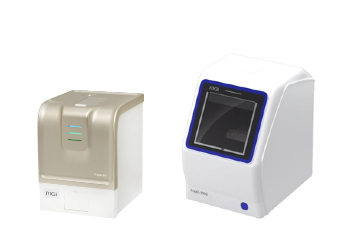

 Technologies
Technologies Applications
Applications Online Resources
Online Resources Data Bulletins
Data Bulletins Service & Support
Service & Support Introduction
Introduction Newsroom
Newsroom Doing Business With Us
Doing Business With Us Creative Club
Creative Club




